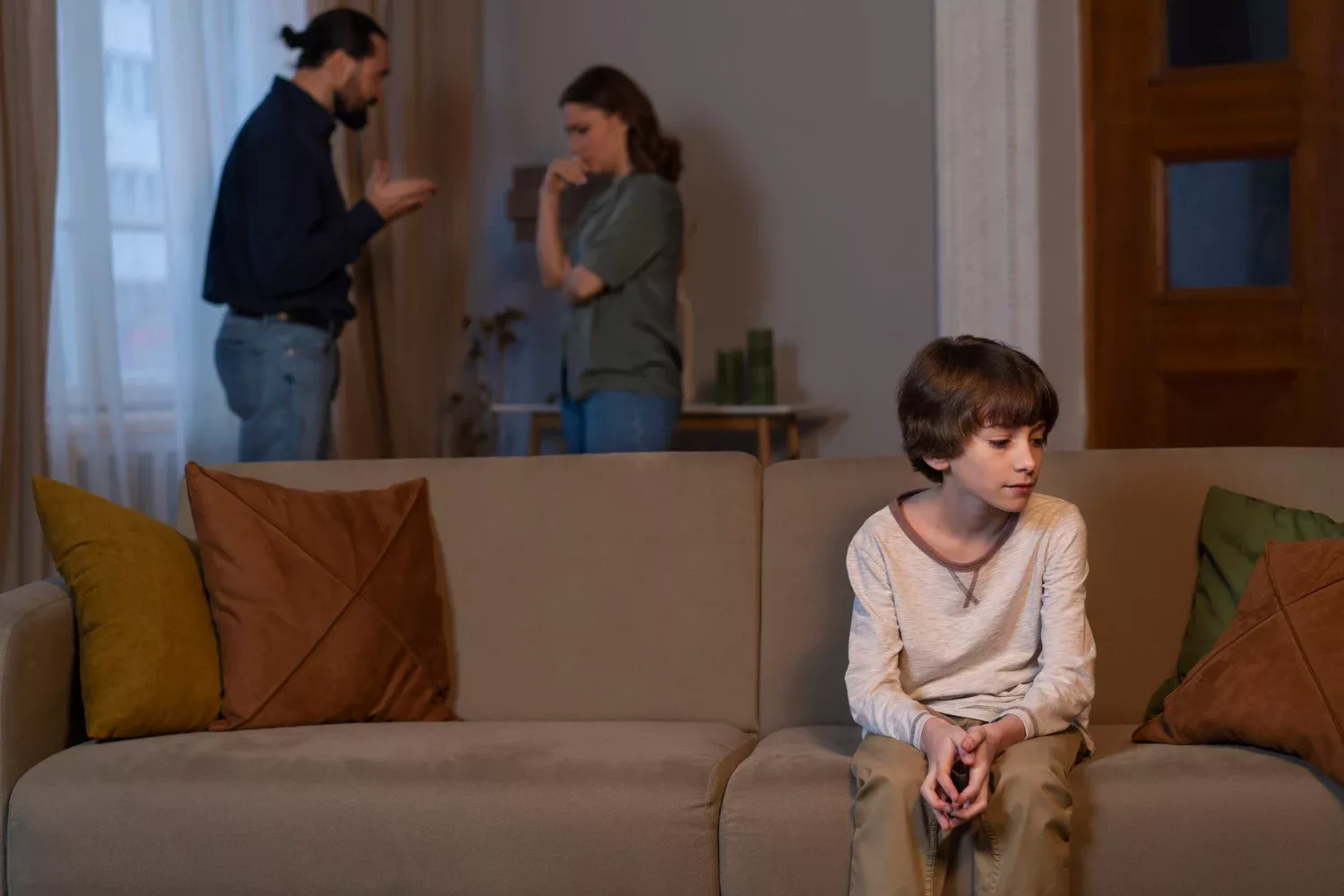Divorce with Kids: How to Navigate the Challenges
Have you ever wondered how divorce can affect your children? At TheBostonDivorceLawyer, we understand the challenges of navigating a divorce with kids involved. In this article, we will explore important considerations and strategies to help you and your children through this difficult time.
As demonstrated by the laws in Family Code section 3020, it is required for parents to consider the best interests of the children when making decisions about divorce proceedings.
This means that the happiness and well-being of the children should be the top priority during the divorce process.
Effects on children
Children often feel responsible for their parents’ divorce or worry about what comes next. They might act out or withdraw as they try to handle the changes in their family.
Divorce can make a child feel insecure and unstable. They may feel like they’ve lost something important and worry about being left alone as they move between two homes. Kids might also see their parents fighting, making them feel torn between both sides.
School performance could drop because of the emotional stress from the divorce. Kids might find it hard to focus on their studies or their grades might slip. Honestly, they could also show behavior problems like being aggressive or defiant as they struggle with their feelings.
Divorce can also affect how kids get along with their parents and siblings. They might feel stuck in the middle of their parents’ arguments or notice shifts in how their family works. Children might even feel left out from their friends as they go through these tough times.
It’s very important for parents to talk openly and truthfully with their kids about the divorce. Giving emotional support, reassurance, and a stable routine can help children adapt. Therapy or counseling can also be helpful for kids to manage their emotions during this period.
Co-parenting strategies
Both parents need to talk and work together. It’s important to focus on what the children need. Having a steady routine helps kids adjust. Be polite and don’t argue in front of the children. Being flexible is key to successful co-parenting. Set aside personal feelings for the sake of the kids. Involve children in making choices when appropriate.
You know, show love and support to your children. Take care of your own mental and emotional health. Reassure your children that both parents love them. Be ready to compromise to create a stable environment for your kids. Get help if you find co-parenting difficult. Always remember that your children’s well-being comes first. Stay committed to making co-parenting work for your children.
Legal custody agreements
Legal custody means having the right to make big decisions about a child’s life, like where they go to school, what medical care they get, and what religion they follow.
Often, parents can agree on legal custody without going to court. They might decide to share joint legal custody, meaning both parents can make decisions together. Sometimes, one parent might get sole legal custody, which lets them make decisions alone.
To be fair, if parents can’t agree, a judge will decide for them. The judge will look at what’s best for the child, considering things like how well the parents get along, the child’s relationship with each parent, and what the child wants.
Once there’s a legal custody agreement, both parents must follow it. Ignoring the agreement can lead to legal trouble. It’s very important for parents to cooperate for their child’s sake, even if they’re no longer together.
Counseling for kids
Kids might feel sad, confused, or angry during a divorce. Talking to a counselor can help them understand their feelings and what’s going on. A counselor gives them a safe place to express themselves and ask questions.
To be fair, they can also learn how to deal with the changes in their family. Counseling can make kids feel less alone and more supported. It’s important for parents to think about getting help for their kids during this tough time.
Adjusting to new family dynamic
When parents split up, kids have to get used to new routines. This might mean living in two homes, spending time with each parent separately, and meeting new people who may become part of their lives.
This new way of living can be hard for kids. They might feel sad, confused, or angry about the divorce. Parents should talk to their kids about what’s going on and make sure they know they are still loved and cared for.
Kids need time to adjust to these changes. They might act out, be more quiet, or find it hard to concentrate at school. In other words, parents should be patient and give their kids extra support and attention to help them cope.
It’s normal for kids to have a lot of different feelings when their family changes. They might miss the way things were or worry about the future. Parents can help by listening to their worries, answering their questions, and being there for them as things change.
With time and support, families can adjust to a new way of living after a divorce. Change can be tough, but with love and understanding, families can come through it even stronger.

Summary
Navigating divorce with children requires a delicate balance of communication, patience, and understanding. Parents must prioritize the well-being of their children above all else, providing them with love and support throughout the process.
What TheBostonDivorceLawyers is strongly supporting is, by working together and putting their children first, families can successfully work through the challenges of divorce and emerge stronger and more resilient in the end.
References
- “The Truth About Children and Divorce: Dealing with the Emotions So You and Your Children Can Thrive” by Robert E. Emery, Penguin Books, 2004.
- “Mom’s House, Dad’s House: Making Two Homes for Your Child” by Isolina Ricci, Touchstone, 2006.
- “Constructive Divorce: Procedural Justice and Consumer Protection” by Penelope Farthing, Edward Elgar Publishing, 2016.






